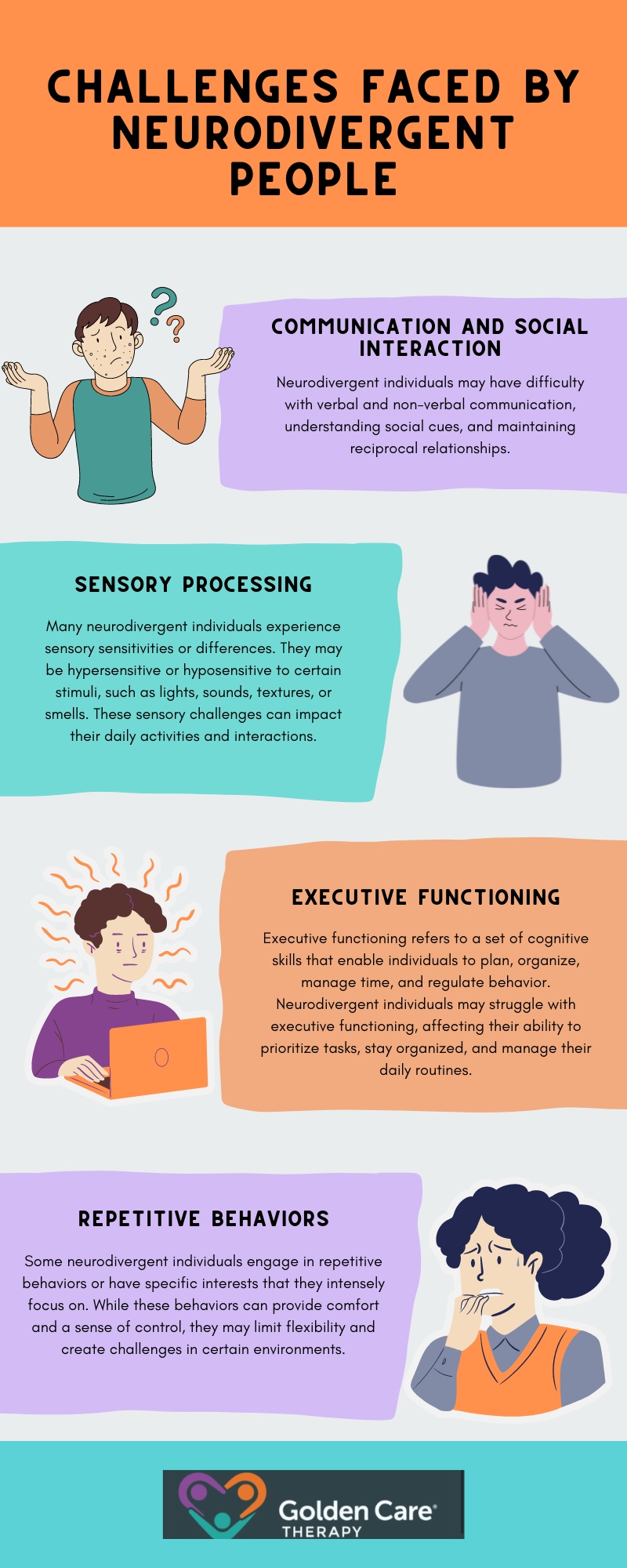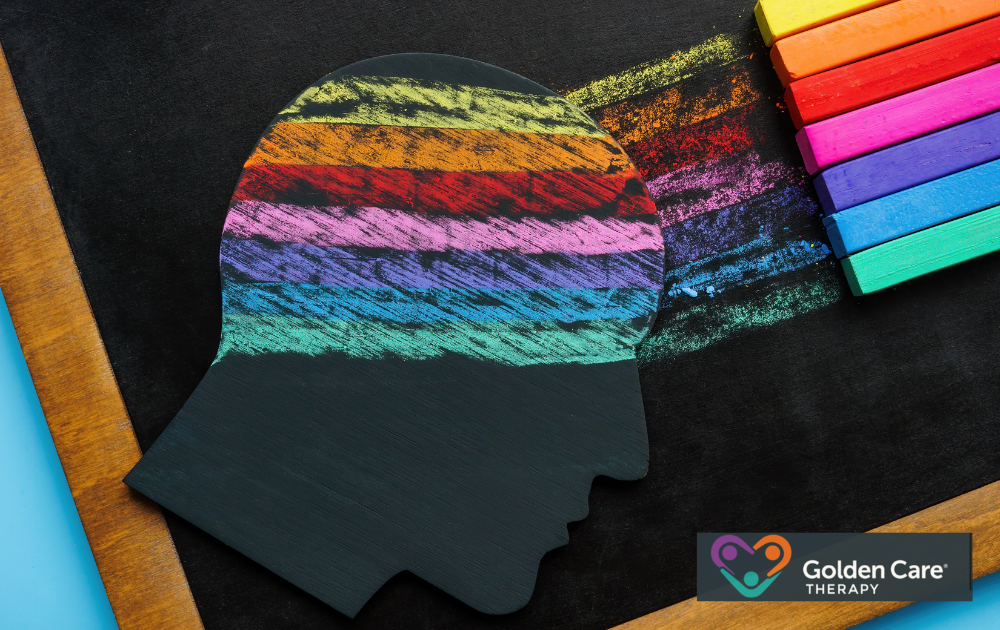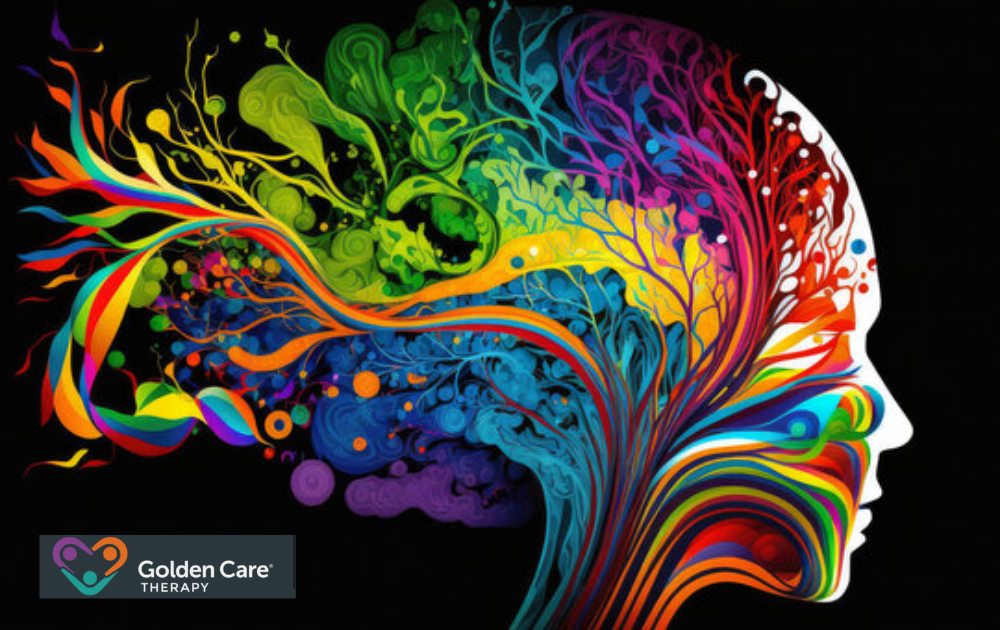Neurodiversity refers to the idea that there is natural variation in how human brains function. It recognizes that individuals with neurodivergent conditions, such as autism, ADHD, dyslexia, and others, exhibit fundamental differences in social understanding, sensory perception, and information processing.
Instead of viewing these differences as deficits or disorders, neurodiversity considers them as natural variations within the human population.
With that in mind, what exactly falls under neurodivergent? Let’s take a look!
What Falls Under Neurodivergent?
Neurodivergent is a term that encompasses a range of neurological variations that diverge from the typical or neurotypical brain function. This includes conditions such as autism spectrum disorder (ASD), attention deficit hyperactivity disorder (ADHD), dyslexia, dyspraxia, and obsessive-compulsive disorder (OCD).
Each of these conditions involves differences in the way individuals perceive, think, and interact with the world, often resulting in unique strengths and challenges.
For instance, someone with ADHD may have heightened creativity and problem-solving skills but struggle with attention and organization, while an individual with dyslexia may face difficulties with reading but excel in visual and spatial tasks.
The concept of neurodivergence is rooted in the idea that these neurological differences should be recognized and respected as part of human diversity rather than being viewed solely through a deficit lens. It challenges the notion of a single “normal” brain function and instead advocates for an understanding and accommodation of various cognitive styles.
This perspective promotes inclusion and support for neurodivergent individuals, acknowledging that their different ways of thinking can contribute valuable perspectives and capabilities to society.

Importance of Recognizing Neurodiversity
Recognizing and embracing neurodiversity is of great significance. It highlights the prevalence and importance of diverse brain types, estimated to encompass nearly 15-20 percent of the world’s population. Acknowledging and accepting neurodivergent individuals allows society to foster a more inclusive and supportive environment.
Understanding neurodiversity also helps dispel misconceptions and reduce the stigma surrounding neurodivergent conditions. It encourages a shift away from the traditional view of normality and abnormality, allowing for a more nuanced understanding of human cognition and behavior.
Moreover, recognizing neurodiversity promotes the development of tailored support and accommodations for individuals with neurodivergent conditions. By embracing the unique strengths and challenges of neurodivergent individuals, it becomes possible to create inclusive educational and work environments that cater to their specific needs.
Neurodivergence in Mental Health
While neurodivergence is often associated with neurodevelopmental disorders and learning or intellectual disabilities, some individuals with mental health conditions also consider themselves neurodivergent.
For example, individuals with conditions like depression or anxiety may view themselves as neurodivergent, while others may not. Opinions among mental health professionals and researchers vary regarding whether mental illness alone constitutes neurodivergence.
It’s important to note that the umbrella of neurodivergence includes a wide range of diagnoses and experiences. Each condition within the neurodivergent spectrum has unique characteristics and challenges.
Understanding and embracing neurodiversity involves recognizing and appreciating the diversity of neurocognitive functioning and providing support tailored to the specific needs of individuals within the neurodivergent community.
Challenges Faced by Neurodivergent People
Neurodivergent individuals may encounter difficulties due to variations in brain function and structure. These challenges manifest in different ways, depending on the specific condition.
Here are some of the most common challenges experienced by neurodivergent individuals include:

It is important to note that the challenges faced by neurodivergent individuals do not reflect their intellectual capabilities. Neurodivergent individuals possess a diverse range of skills, talents, and abilities. Their unique perspectives and ways of processing information can contribute positively to various fields, including sciences, arts, and technology.
It is crucial to provide support, accommodations, and resources that enable neurodivergent individuals to thrive and reach their full potential. Embracing their strengths and providing necessary support allows us to ensure a more inclusive and accepting society for all.

Neurocognitive Differences
Neurodivergent individuals exhibit a range of neurocognitive differences, which can include variations in learning styles, sensory processing abilities, communication styles, behaviors, and social interactions. These differences can manifest in various ways depending on the specific neurodivergent condition, such as autism spectrum disorder (ASD), attention deficit hyperactivity disorder (ADHD), or dyslexia, among others.
For example, individuals with ASD may have difficulty understanding and interpreting social cues, have sensory sensitivities, and exhibit repetitive behaviors or restricted interests. Those with ADHD may struggle with attention, impulse control, and hyperactivity. Dyslexia, on the other hand, affects reading and language processing.
It’s important to recognize that neurocognitive differences do not indicate a lack of intelligence or capability. Neurodivergent individuals often possess unique strengths and abilities that can be harnessed and celebrated.
In a nutshell, being neurodivergent means that your brain works differently from what we often think of as “typical.” This can include a range of experiences and ways of thinking, such as autism, ADHD, dyslexia, and more.
Each of these unique ways of processing the world adds valuable diversity to our communities. By understanding and embracing neurodiversity, we can create a more inclusive and supportive environment where everyone’s differences are celebrated.
So, whether you’re exploring your own neurodivergent traits or learning about others, remember that these differences make our world richer and more vibrant. For personalized support and comprehensive services, consider reaching out to Golden Care Therapy, a leading ABA center in New Jersey, New York, Georgia, and Indiana.
To learn more about how Golden Care Therapy can assist you, visit our website or contact us today to book a consultation.



